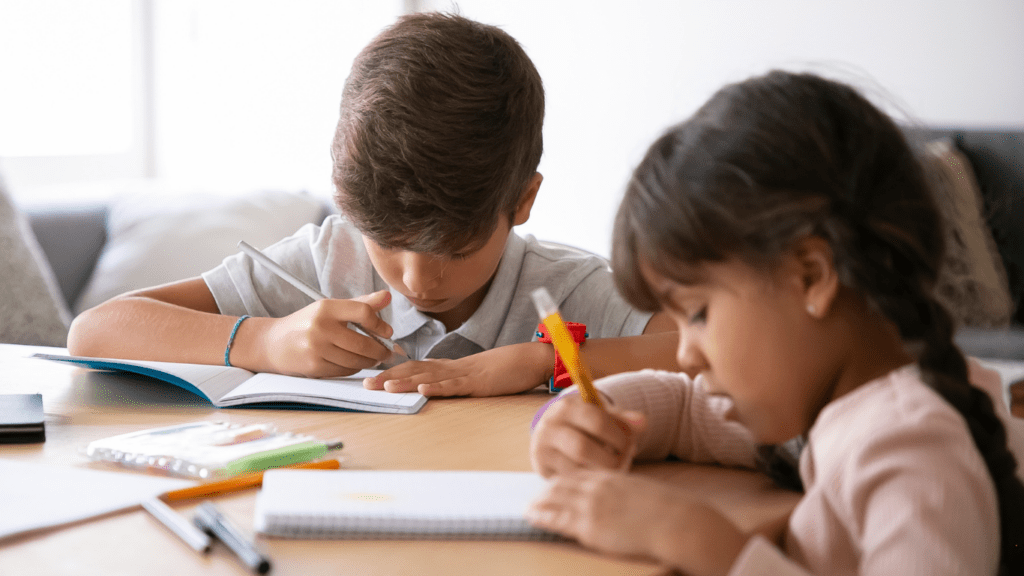As a parent, I understand the daily juggle of ensuring our kids’ routines are not only structured but also enjoyable. Balancing homework, playtime, and quality family moments can sometimes feel like a puzzle with missing pieces.
In this article, I’ll share practical tips on how to create a well-rounded schedule that fosters learning, fun, and bonding within the family. Finding the right equilibrium between academics, recreation, and togetherness is key to promoting a healthy lifestyle for our children.
By establishing a harmonious routine that includes time for homework, play, and family activities, we can help our kids thrive both academically and emotionally. Join me as we explore strategies to strike a balance that nurtures their growth and happiness.
The Importance of Balanced Routine for Kids
Balancing homework, play, and family time is crucial for children’s overall development. As a parent, I understand the significance of creating a well-rounded routine that nurtures both academic and emotional growth in my kids.
Striking a balance between school assignments, recreational activities, and quality family moments is vital to fostering a healthy and happy lifestyle for children. By establishing a structured routine that integrates homework responsibilities, playtime, and bonding with family members, kids can experience a sense of stability and consistency in their daily lives.
This balance not only supports their academic progress but also enhances their social and emotional well-being. It lays a strong foundation for time management skills, encourages creativity through play, and strengthens family bonds through shared experiences.
Incorporating a diverse range of activities in children’s daily schedules promotes holistic development and helps them explore their interests and talents. A balanced routine empowers kids to manage their time effectively, prioritize tasks, and cultivate a positive attitude towards learning and leisure.
It also fosters a sense of belonging within the family unit, creating lasting memories and fostering relationships built on love, trust, and support. In essence, a balanced routine for kids is not just about managing different aspects of their day but also about instilling values of responsibility, joy, and connection.
As parents, it’s our responsibility to guide them in embracing a lifestyle that harmonizes academic excellence, playfulness, and meaningful family interactions. Embracing this approach sets a strong foundation for our children’s overall well-being and long-term success.
Setting Up Homework Time
When it comes to setting up homework time for kids, creating a structured and efficient study environment is key to fostering their academic development. Here are some essential tips to optimize their homework routine:
- Designated Study Area: Assign a specific area in the house for homework that is well-lit, quiet, and free from distractions to help kids focus better on their tasks.
- Organizational Tools: Provide organizational tools such as notebooks, pencils, pens, and a calendar to help children keep track of assignments and stay on top of their academic responsibilities.
- Comfortable Seating: Ensure that the study area has a comfortable chair and a suitable desk height to promote good posture and prevent physical discomfort during study sessions.
- Tech Management: Regulate the use of electronic devices during homework time to minimize distractions and encourage children to concentrate on their schoolwork.
- Parental Support: Offer guidance and assistance when needed, but encourage independence and problem-solving skills to help kids develop a sense of responsibility and self-reliance.
By implementing these strategies, parents can create a conducive environment that supports effective homework completion and enhances children’s learning experience.
Incorporating Play into Daily Schedule
Ensuring playtime is an essential aspect of a child’s daily routine. Children need play to develop their cognitive, social, and emotional skills.
By incorporating play into their schedule, parents can help children strike a balance between academics and recreation. Play allows kids to explore their creativity, build problem-solving abilities, and learn how to interact with others effectively.
- Set Aside Dedicated Play Time: Create specific periods during the day when your child can engage in unstructured play. This could be after homework or after dinner. Allotting time for play ensures that it remains a priority in their routine.
- Encourage Outdoor Play: Outdoor activities offer numerous benefits such as physical exercise, exposure to nature, and sensory stimulation. Encourage your child to spend time outdoors playing sports, riding bikes, or exploring nature.
- Provide a Variety of Toys and Games: Offer an assortment of toys, games, puzzles, and art supplies to cater to different interests and age groups. Having a variety of options ensures that playtime remains engaging and stimulating.
- Join in the Play: Engaging in play with your child not only strengthens your bond but also provides an opportunity for learning and exploration. Participate in their games, pretend play, or creative projects to foster a sense of connection and joy.
- Limit Screen Time: Setting boundaries on screen time is crucial to ensure that play is not overshadowed by electronic devices. Encourage activities that promote active play and limit the use of screens during designated play times.
Family Bonding Activities
When it comes to strengthening family bonds, incorporating engaging activities into your routine can create lasting memories and promote a sense of togetherness. As a parent, I understand the significance of fostering strong family connections through shared experiences.
Here are some effective family bonding activities to consider:
- Family Game Night: Playing board games, card games, or puzzles together can be a fun way to bond as a family. It not only encourages teamwork and communication but also provides a relaxed environment for everyone to enjoy each other’s company.
- Cooking Together: Involving kids in meal preparation can be both educational and enjoyable. Cooking together allows for quality time spent in the kitchen, teaching children valuable skills while creating delicious meals as a team.
- Outdoor Adventures: Going on nature walks, picnics, or biking trips as a family can promote physical activity and help strengthen the family bond through shared experiences in the great outdoors.
- Movie or Story Time: Watching a movie or reading a story together can be a cozy bonding activity. It allows for relaxation and shared storytelling experiences that can spark meaningful conversations.
- Crafting or DIY Projects: Engaging in creative activities like crafting, painting, or DIY projects together can ignite creativity and collaboration within the family while fostering a sense of accomplishment.
- Family Exercise Sessions: Participating in physical activities together, such as yoga, dancing, or simple workout routines, not only promotes a healthy lifestyle but also encourages bonding through shared fitness goals.
- Volunteering as a Family: Giving back to the community through volunteering activities can instill a sense of empathy and altruism in children while strengthening family values and creating lasting memories together.
By incorporating these family bonding activities into your routine, you can create a positive and nurturing environment that fosters strong family ties and enhances the overall well-being of your children.



 William Denovan played a crucial role in shaping the success of Dazzling Holly Moms, contributing his expertise in content strategy and platform development. His ability to create engaging, informative content helped establish the platform as a valuable resource for modern mothers. William's dedication to ensuring the platform consistently delivers high-quality parenting tips, wellness advice, and travel recommendations has been instrumental in its growth. His contributions continue to enhance the experience for moms seeking guidance and inspiration on their parenting journey.
William Denovan played a crucial role in shaping the success of Dazzling Holly Moms, contributing his expertise in content strategy and platform development. His ability to create engaging, informative content helped establish the platform as a valuable resource for modern mothers. William's dedication to ensuring the platform consistently delivers high-quality parenting tips, wellness advice, and travel recommendations has been instrumental in its growth. His contributions continue to enhance the experience for moms seeking guidance and inspiration on their parenting journey.